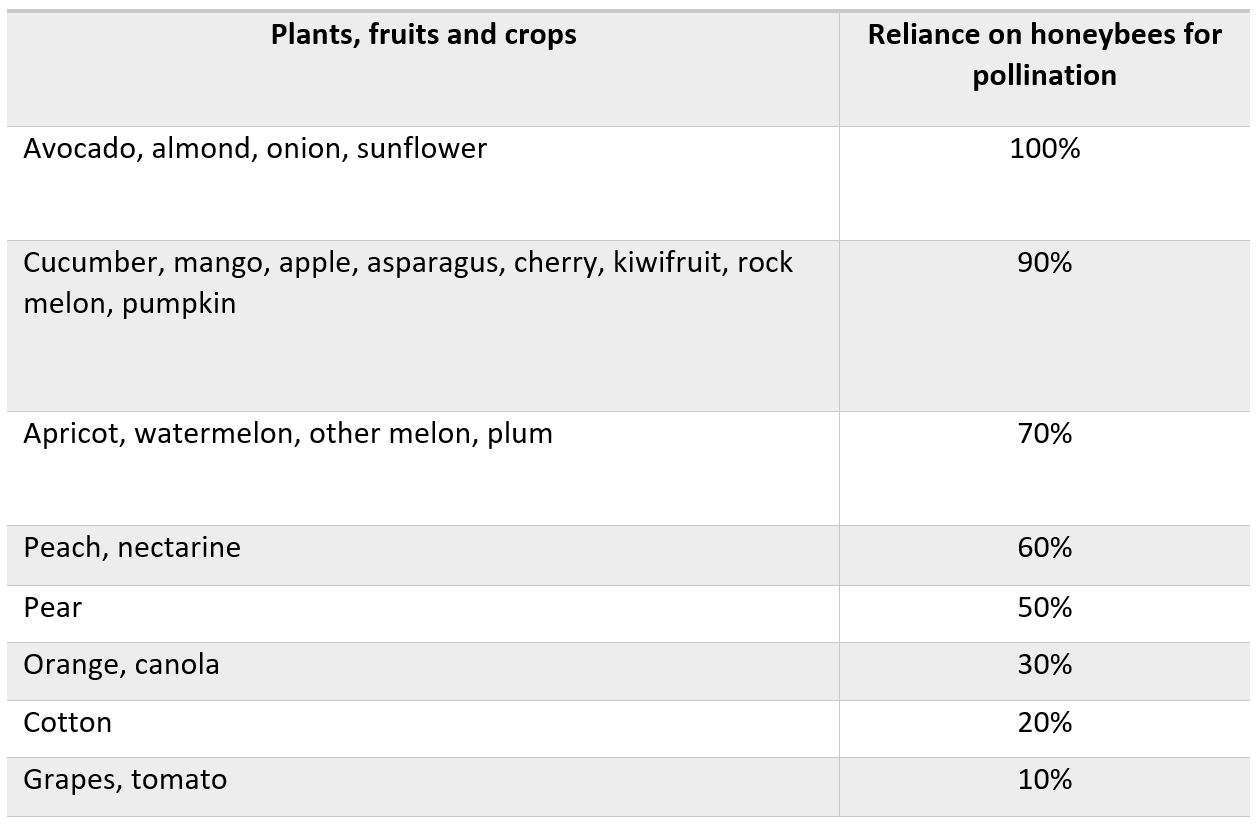We need bees for more than honey
Bees play a major role in the pollination of plants and crops, and are extremely important commercially for farming practices worldwide. It is an essential service—without pollination, life on the planet would be very different and probably much less diverse.
It is estimated that about one-third of global food production requires animal pollination and that 80–90 per cent of this role is carried out by honeybees. In Australia, two-thirds of all horticultural and agricultural crops need honeybees for optimal pollination. Many fruits, such as apples, raspberries and peaches, are more productive, produce better, more attractive fruit and even store better and for longer when they are serviced by honeybees.
Lucerne, which is an important crop for feeding livestock such as cattle, is also much more productive when sufficient numbers of honeybees are available to promote pollination.
Almond blossoms rely completely on honeybees for pollination—so, no bees, no almonds. It has been estimated that the value of honeybee-reliant agriculture in Australia is $4–6 billion per year and rising.

Australia’s honeybees are among the most disease-free in the world and are therefore in considerable international demand for their pollination services, especially in those countries that have suffered from sudden colony losses. For example, the value of Australian exports of honeybees to the United States in 2010, mainly for the Californian almond-flowering season, was around $7.5 million.
The export of ‘controlled queen bees’—to reduce swarming and help maintain hive productivity—is also a valuable exercise. However, this industry is now mainly restricted to the export of Tasmanian bees since mainland exports have been halted due to the presence of the Asian honey bee and problems such as the small hive beetle.





